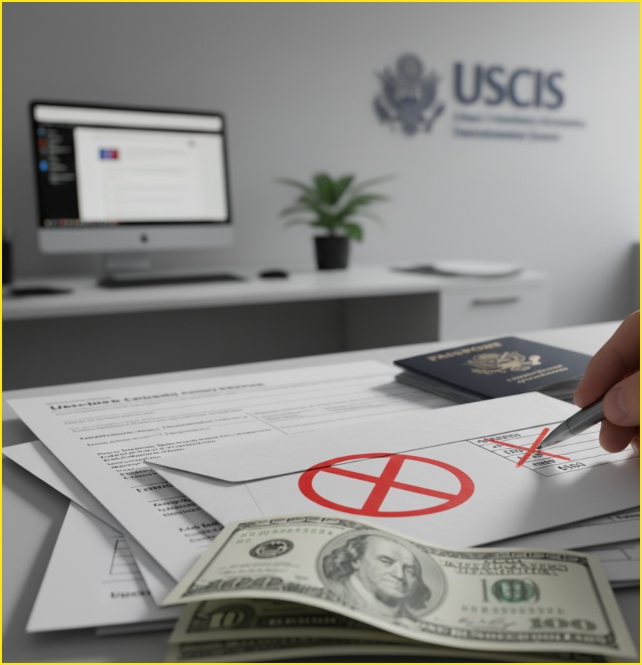A federal court decision has forced the U.S. Citizenship and Immigration Services (USCIS) to halt collection of the new $100 Annual Asylum Fee (AAF) while litigation proceeds.
The decision by the court provides temporary relief to thousands of asylum-seekers but leaves lingering uncertainty about the future of the fee.

What Happened:
The AAF was introduced under the One Big Beautiful Bill Act (H.R. 1) and outlined in a July 2025 Federal Register notice. Under the rule, asylum applicants with a Form I-589 pending for a full fiscal year would be required to pay the $100 annual fee — no waiver allowed.
On October 30, 2025, the Asylum Seeker Advocacy Project (ASAP) won a temporary stay in the U.S. District Court for the District of Maryland, pausing enforcement of the fee. The court flagged concerns about retroactive implementation, inadequate notice, and the potential for fee non-payment to harm pending asylum claims.
In early November, USCIS issued an alert confirming it will comply with the court order:
- Payment notices for the AAF are paused for now.
- Applicants who received a fee notice are told to disregard it — but those who already paid will not receive refunds.
Why It Matters:
The pause of the asylum fee represents a meaningful win for humanitarian advocates who argued that the $100 charge risked forcing low-income and vulnerable asylum-seekers into financial limbo — or worse, jeopardizing their ability to seek protection.
LaToya McBean Pompy Esq., an immigration attorney, called the fee rollout “a mass amount of confusion” and urged applicants to keep proof of payment if they paid, while warning that USCIS is unhappy with the court order.
“The asylum fee, friends… No one could figure out how to pay the fee, where to pay it, who it applied to.” — McBean Pompy
Critics say fees like this turn what are supposed to be humanitarian protections into pay-to-play systems, eroding access for those fleeing persecution. Supporters of the fee argue it offsets taxpayer costs for processing and managing asylum claims.
What Asylum-Seekers Should Do Now:
- Don’t pay the $100 annual fee unless you receive a confirmed notice from USCIS stating it is due.
- Retain receipts if you already paid — the agency says your payment “will be valid for this year” though no refund is promised.
- Monitor updates — USCIS has said revised guidance will follow pending the outcome of litigation.
- Seek legal advice — If a fee notice was issued, or your case’s status is uncertain, consult an immigration attorney for personal guidance.
This episode underscores tensions between cost-recovery efforts and ensuring meaningful access to asylum — a fundamental tenet of U.S. and international humanitarian law. While the fee is paused, the fight over whether and how it could be imposed in future remains open.
If the stay is lifted, thousands of pending asylum cases could face sudden financial burdens or administrative complications. For now, the rule is: no payment required — but that could change. As the court weighs the legality of the fee structure, asylum-seekers and advocates will be watching closely.

